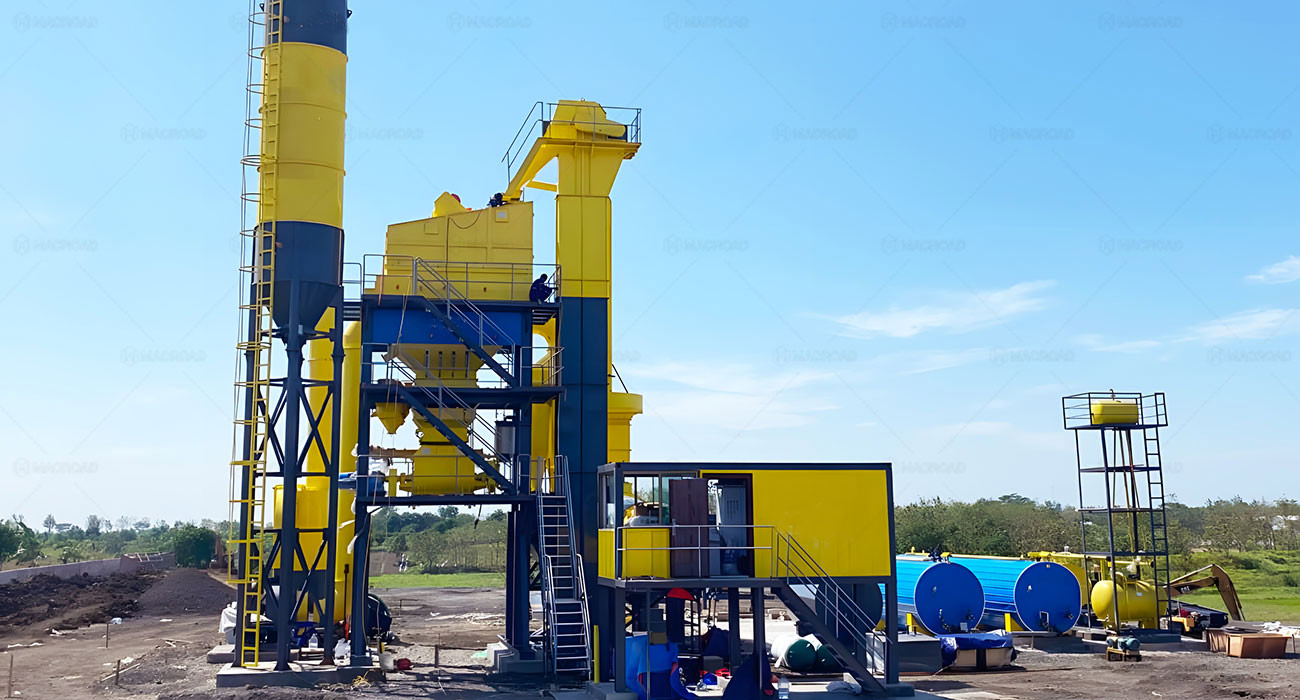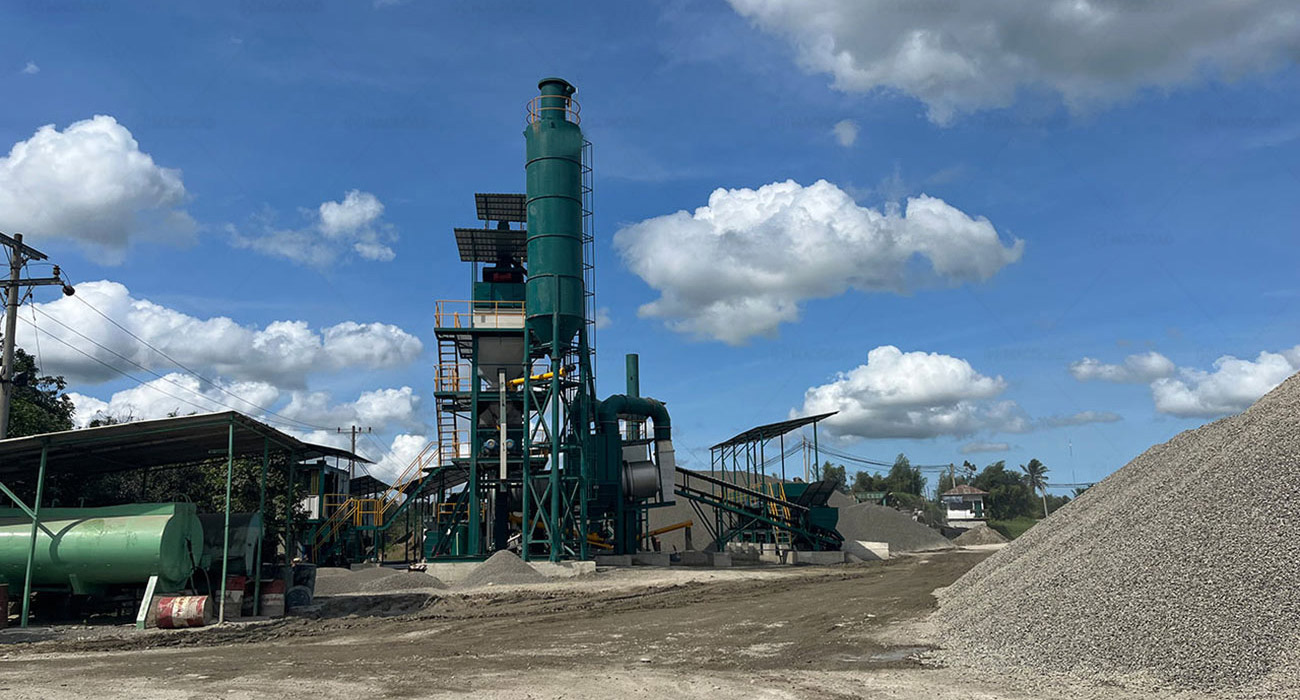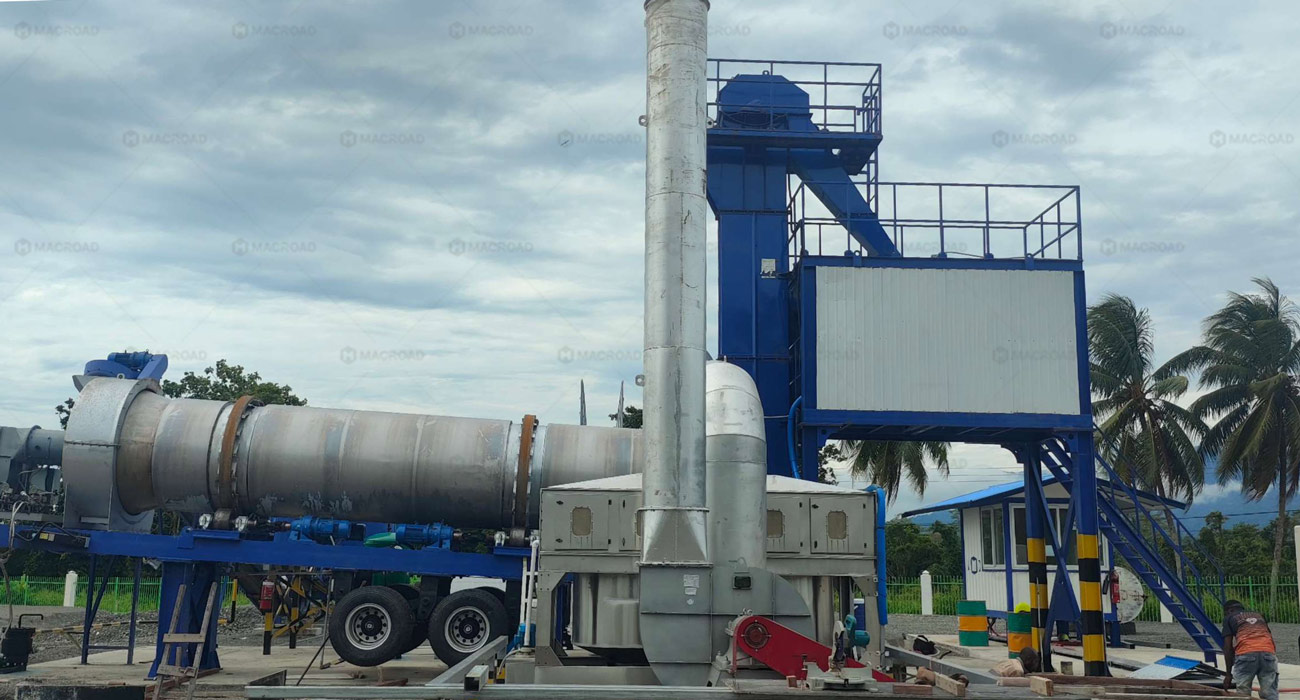When customizing mixing plants, one of the critical design considerations is the thickness of the thermal insulation layer for finished material silos. Proper insulation is essential to maintain the quality of the stored materials, particularly in varying ambient temperatures. This article explores the factors influencing insulation thickness, focusing on thermal efficiency, material characteristics, and environmental conditions.

Understanding Thermal Efficiency Requirements
The primary goal of the thermal insulation layer is to maintain the temperature of the finished materials within optimal ranges. This is crucial for preventing temperature variations that can affect the quality of the asphalt mix. When customers work with an asphalt plant supplier like Macroad, they should emphasize the importance of thermal efficiency in their designs.
To determine the appropriate insulation thickness, customers must consider the specific thermal conductivity of the insulation materials used. Materials with lower thermal conductivity will require less thickness to achieve the desired insulation effect. Conversely, higher conductivity materials may necessitate a thicker layer to maintain temperature stability.

For instance, if the mixing plant is designed for hot mix plant, the insulation layer must be sufficient to prevent heat loss, especially during colder months. A well-insulated silo will help retain the heat in the asphalt, ensuring that it remains workable when transported for application. Therefore, assessing the thermal efficiency of different insulation materials is a crucial step in the design process.
Evaluating Material Characteristics
Another important aspect to consider is the characteristics of the finished materials stored in the silos. Different types of asphalt mixtures may have varying sensitivities to temperature changes. For example, some mixtures may require stricter temperature control to prevent hardening or separation. This sensitivity can influence the thickness of the thermal insulation layer.
Customers should discuss their specific material requirements with their asphalt plant supplier to ensure that the insulation is designed accordingly. If the materials are prone to changes in texture or consistency based on temperature fluctuations, a thicker insulation layer may be necessary to provide stable storage conditions.
Additionally, it’s important to consider the potential for condensation within the silo. A well-designed insulation layer will help minimize temperature differentials that can lead to condensation, which can adversely affect the quality of the asphalt. Therefore, evaluating the characteristics of the stored materials is vital for determining the appropriate insulation thickness.

Considering Environmental Conditions
The environmental conditions in which the mixing plant operates also play a significant role in determining the thickness of the thermal insulation layer. Factors such as ambient temperature, humidity levels, and seasonal variations must be taken into account. Also asphalt plant price is an essential part of all. For instance, in regions with extreme temperature fluctuations, a thicker insulation layer may be necessary to prevent heat loss or gain.
Customers should conduct a thorough analysis of the local climate when discussing designs with their asphalt plant suppliers. This analysis can help establish the insulation requirements based on expected temperature ranges and humidity levels.
Moreover, understanding the specific operational conditions of the hot mix plant can further refine insulation thickness decisions. If the plant operates continuously or during extreme weather events, additional insulation may be required to ensure optimal performance.
Conclusion
Designing the thickness of the thermal insulation layer for finished material silos in mixing plants involves careful consideration of thermal efficiency, material characteristics, and environmental conditions. By collaborating closely with asphalt plant suppliers and evaluating these factors, customers can ensure that their customized mixing plants are equipped with effective insulation solutions. Proper insulation not only enhances the quality of the stored asphalt but also contributes to overall operational efficiency. Whether exploring asphalt plants for sale or evaluating asphalt plant prices, understanding these design elements is crucial for making informed purchasing decisions.